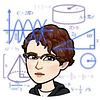Take a photo of a barcode or cover
reflective
relaxing
fast-paced
Plot or Character Driven:
A mix
Strong character development:
Yes
Loveable characters:
No
Diverse cast of characters:
No
Flaws of characters a main focus:
Complicated
challenging
emotional
Fascinating exploration of man’s hubris, creation and the pursuit of paradise, folly and life’s persistence.
The first instance of the use of the term Robot - indicating machines used to replace labor. Great as a reference for the starting point of notions of man, machine, android, etc. I think we forget that this was originally an issue with regards to labor - though in the real world it continues to be the issue.
For a play published in 1920, there is a lot here that should interest a contemporary reader, from its philosophizing on human nature that would lay the basis for later SF works that explore personhood, agency and autonomy from Asimov to Martha Wells, to its critique of industrialization, to its commentary on the uncanny valley 50 or so years before that term was coined. Some of the text may feel dated (it's over 100 years old at this point) but that doesn't get in the way of what philosophical, cultural and political insights we readers today can glean from it.
Most known for being the source of the word "robot" (taken from the Czech "robota" for hard or difficult work), I read this play for my observance of Banned Book week, as Čapek, an ardent anti-fascist, had been a target for the Nazis (he died before they could arrest him, while his brother Joseph, Karel's creative collaborator and fellow anti-fascist, would later die in the Belsen concentration camp) and his works were later banned in his native country for decades by the then communist government. It's a good and fitting reminder of what we stand to lose if we allow the authoritarians to win.
Most known for being the source of the word "robot" (taken from the Czech "robota" for hard or difficult work), I read this play for my observance of Banned Book week, as Čapek, an ardent anti-fascist, had been a target for the Nazis (he died before they could arrest him, while his brother Joseph, Karel's creative collaborator and fellow anti-fascist, would later die in the Belsen concentration camp) and his works were later banned in his native country for decades by the then communist government. It's a good and fitting reminder of what we stand to lose if we allow the authoritarians to win.
I don’t remember where I first heard of this (probably in one of my books about 1920/the 20s), but once I read that it’s where the term “robot” came from, I had to read it. I didn’t realize it was a play!
This was really good and I’m surprised it hasn’t really been adapted yet (it has adaptations, but nothing big) as it has so many elements that are popular - the creation of the robots, the over reliance on them, their uprising, the last man trying to save it all… What a story.
This was really good and I’m surprised it hasn’t really been adapted yet (it has adaptations, but nothing big) as it has so many elements that are popular - the creation of the robots, the over reliance on them, their uprising, the last man trying to save it all… What a story.
"To be like people is to kill and to dominate. Read the history books. Read the books written by people. To be like people it is necessary to dominate and to murder"
I've watched too many doctor who episodes (and the news) to be shocked by the contents so it didn't make me think that much. BUT this was also the first time the word robot was used and then became popular, the play was written in 1920. If I didn't consume so much similar media I'd be much more impressed. The 20s language was something to get through rather than enjoy, but it's a quick read so if you're interested in must-read plays this is one.
I've watched too many doctor who episodes (and the news) to be shocked by the contents so it didn't make me think that much. BUT this was also the first time the word robot was used and then became popular, the play was written in 1920. If I didn't consume so much similar media I'd be much more impressed. The 20s language was something to get through rather than enjoy, but it's a quick read so if you're interested in must-read plays this is one.
4,5*
Tohle je opravdu neskutečně fascinující dílo. Zábavné a alarmující. Nadčasové a platné pro každou dobu. První dvě dějství se mi však zdála trochu utahaná (na scéně to však musí působit jinak), ten závěr ale opravdu stojí zato..!
Tohle je opravdu neskutečně fascinující dílo. Zábavné a alarmující. Nadčasové a platné pro každou dobu. První dvě dějství se mi však zdála trochu utahaná (na scéně to však musí působit jinak), ten závěr ale opravdu stojí zato..!
More of a historical curiosity than anything else. Also, how could Capek be such a visionary in one sense, but still so incapable of writing a female character or envisioning anything other than the most sexist role for her?
Fun, short, and very dated. Still, for its time, it must have been breathtaking.
I liked it, but I prefer character-driven stories, and so, this brilliant allegory, even more relevant today than in 1920, fell a bit short. I found the characters lacking in depth (the scientists might as well have been the same character), except for the robots, which perhaps could have been the point.







